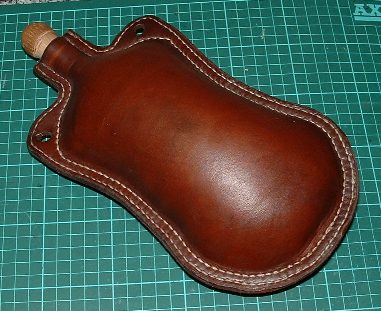data dump
Nethir men putten newe wyne in to elde botelis, ellis the botels ben to-broke, and distried, and the wyn sched out. But men putten newe wyne in to newe botels, and bothe ben kept. Wycliffe 1395
Nether do men put newe wyne into olde vessels for then the vessels breake and the wyne runneth oute and the vessels perysshe. But they powre newe wyne into newe vessels and so are both saved togeder. Tyndale 1526
Nether do men put new wyne in to olde vessels, for then the vessels breake, and the wyne runneth out, & ye vessels peryshe, But they poure newe wyne in to newe vessels, and so are both saued together, Coverdale 1535
Neither do men put new wyne into olde vessels, for then the vessels break, and the wyne runneth oute, and the vessels peysh. But they poure new wyne into new vessels, and so are bothe saued together. Matthew's 1537
Nether do men put new wyne into olde: bottels: els the bottels breake, and the wyne runneth out, and the bottels peryshe. But they putt new wyne into new bottels, and both are saued together. The Great Bible 1540
Neither do men put newe wine into olde vessels: els, the vessels breake, and the wyne runneth out, and the vessels peryshe: But they put newe wyne, into newe vessels, and both are preserued together. Bishops 1568
Neither doe they put newe wine into olde vessels: for then the vessels would breake, and the wine woulde be spilt, and the vessels shoulde perish: but they put new wine into newe vessels, and so are both preserued. Geneva 1587
Neither do they put nevv vvine into old bottels. Othervvise the bottels breake, and the vvine runneth out, and the bottels perish. But nevv vvine they put into nevv bottels: and both are preserued together. Doway-Rhemes 1610
Neither doe men put new wine into old bottels: else the bottels breake, and the wine runneth out, and the bottels perish: but they put new wine into new bottels, and both are preserued. KJV 1611
****************
Vulgate utres = skin; wine/water skin; bag/bottle made of skin/hide; (inflated for flotation) Whitaker, W.. Dictionary of Latin Forms (2012)
*****************
Bottle 15x in 14 verses in the AV
And Abraham rose up early in the morning, and took bread, and a bottle of water, and gave it unto Hagar, putting it on her shoulder, and the child, and sent her away: and she departed, and wandered in the wilderness of Beersheba. Genesis 21:14
And the water was spent in the bottle, and she cast the child under one of the shrubs. Genesis 21:15
And God opened her eyes, and she saw a well of water; and she went, and filled the bottle with water, and gave the lad drink. Genesis 21:19
And he said unto her, Give me, I pray thee, a little water to drink; for I am thirsty. And she opened a bottle of milk, and gave him drink, and covered him. Judges 4:19
And when she had weaned him, she took him up with her, with three bullocks, and one ephah of flour, and a bottle of wine, and brought him unto the house of the LORD in Shiloh: and the child was young. 1 Samuel 1:24
Then shalt thou go on forward from thence, and thou shalt come to the plain of Tabor, and there shall meet thee three men going up to God to Bethel, one carrying three kids, and another carrying three loaves of bread, and another carrying a bottle of wine: 1 Samuel 10:3
And Jesse took an ass laden with bread, and a bottle of wine, and a kid, and sent them by David his son unto Saul. 1 Samuel 16:20
And when David was a little past the top of the hill, behold, Ziba the servant of Mephibosheth met him, with a couple of asses saddled, and upon them two hundred loaves of bread, and an hundred bunches of raisins, and an hundred of summer fruits, and a bottle of wine. 2 Samuel 16:1
Thou tellest my wanderings: put thou my tears into thy bottle: are they not in thy book? Psalm 56:8
For I am become like a bottle in the smoke; yet do I not forget thy statutes. Psalm 119:83
Therefore thou shalt speak unto them this word; Thus saith the LORD God of Israel, Every bottle shall be filled with wine: and they shall say unto thee, Do we not certainly know that every bottle shall be filled with wine? Jeremiah 13:12
Thus saith the LORD, Go and get a potter’s earthen bottle, and take of the ancients of the people, and of the ancients of the priests; Jeremiah 19:1
Then shalt thou break the bottle in the sight of the men that go with thee, Jeremiah 19:10
Woe unto him that giveth his neighbour drink, that puttest thy bottle to him, and makest him drunken also, that thou mayest look on their nakedness! Habakkuk 2:15
****************************
1 x in NAB
Though he wears out like a leather bottle, like a garment that the moth has consumed? Job 13:28 (NAB 1970)
1 x in ESV, HCSB, in Ps 56:8 [jar]
2x NLT Ps 56:8 and Ecc 10:1
2x NASB Ps 56:8 and Judges 4:19
0 NIV, NET,
Rob

